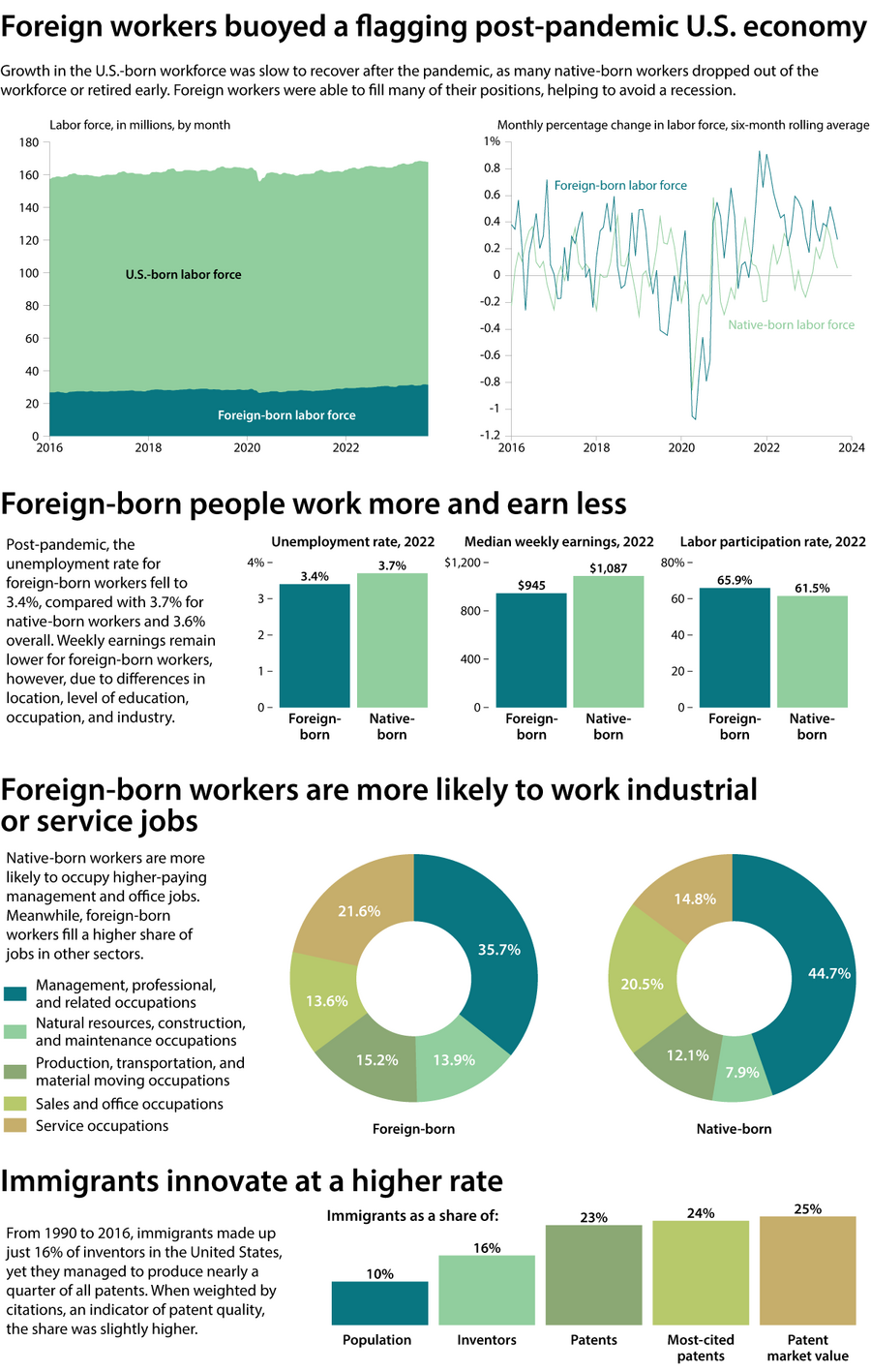Do immigrants help or hurt the US economy? The answer might surprise you.
Loading...
Are immigrants a boon to the U.S. economy or a drag on it?
For urban centers that have experienced a surge of immigrants, the costs are staggering. For instance, the office of the mayor of New York predicted that the city will spend north of $12 billion through fiscal year 2025 to accommodate more than 100,000 migrants. But that’s a microcosm. The macro picture tells a different story.
The United States is experiencing a labor shortage, according to Dhaval Joshi, chief strategist at BCA Research, an economic analysis firm. Blame the pandemic. It led many older workers to retire early. Plus, an estimated 1.7 million native-born workers ages 25 to 55 have dropped out of the workforce since the pandemic. The surge of people who have immigrated to the U.S. legally or illegally since 2022 has helped fill those job vacancies. That’s helped stave off a recession.
Why We Wrote This
A story focused onImmigration and the economy are top concerns of voters ahead of the 2024 U.S. election. But political talking points don’t tell the whole story.
“One important way to reduce inflation is to increase the production of goods and services,” says David Bier, associate director of immigration studies at the Cato Institute, a libertarian think tank in Washington. “One reason why the economy has adjusted over the last three years is the fact that we have started to get these immigrants into the labor force.”
Many foreign-born workers are filling important roles in sectors such as care for older adults and construction. Sometimes, they are invisible, until tragedy strikes. The six workers who died while filling potholes after midnight on Baltimore’s Francis Scott Key Bridge came from El Salvador, Guatemala, Honduras, and Mexico.
Immigrants also create a disproportionate share of both patents and companies. Some 55% of U.S. startup companies valued at more than $1 billion were founded by immigrants, according to a 2022 study by the National Foundation for American Policy.
The increase in foreign-born labor is vital at a time when U.S. birthrates are declining, economists say.
Some Americans fear that an influx of unskilled laborers means lower wages. But Mr. Bier says that the increase in competition for those jobs incentivizes workers to jockey for position by becoming more skilled and educated. It has a positive effect on the long-term quality of jobs.
“The story of the last 40 years is not declining living standards,” says the analyst. “It’s a shift toward a more skilled, more service-sector economy. Banning immigration would disrupt that change in a very significant way.”









